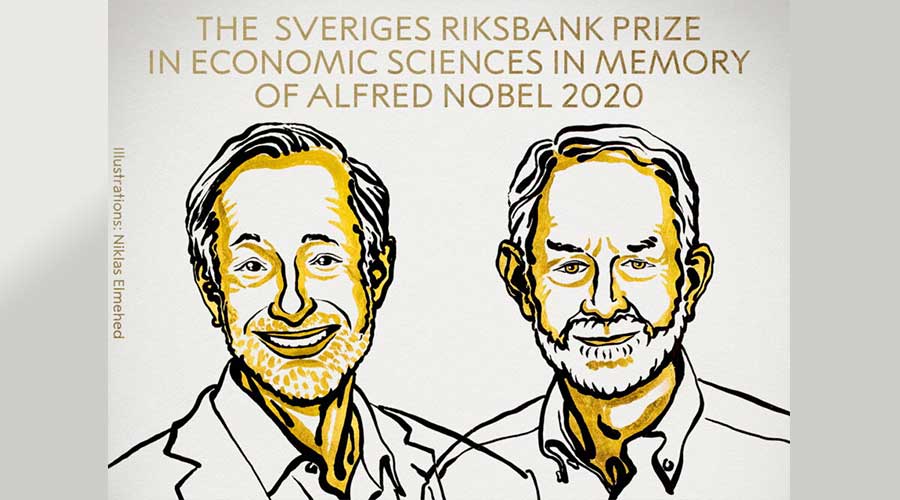The US duo Paul Milgrom and Robert Wilson won the Nobel Prize in Economics for their contributions to auction theory.
According to the Royal Swedish Academy of Sciences, they also designed auction formats for goods and services that are difficult to sell in a traditional way, such as radio frequencies.
Read more: Scientists who discovered the Hepatitis C virus awarded Nobel Prize
According to the Nobel Committee, US economists Paul Milgrom and Robert Wilson won the Nobel Economics. The duo was honored “for improvements to auction theory and inventions of new auction formats,” the jury said. The Royal Swedish Academy of Sciences noted that the discoveries by Milgrom, 72, and Wilson, 83, “have benefitted sellers, buyers, and taxpayers around the world”, it said in a statement.
“Auctions affect all of us at every level. Moreover, they are becoming increasingly common and increasingly complicated,” the academy said. Also listed examples like flexible electricity process set by daily auctions and countries raising funds through government bond auctions.
The winners of Nobel Prize in economics Milgrom and Wilson are both professors at Stanford University in California and both Wilson live on the same street.
Professor Wilson was highlighted for developing a theory on auctions focusing on a common value like the future value of radio frequencies, or the rights to extract minerals in a particular area. This common value “is uncertain beforehand but, in the end, is the same for everyone”, according to the academy.
Professor Milgrom came up with a more general theory of auctions. He analyzed bidding strategies in different forms of the auction and published his paper around 1980.
The academy noted that while “people have always sold things to the highest bidder,” societies have also had to allocate “ever more complex objects, such as landing slots and radio frequencies” among users.
“In response, Milgrom and Wilson invented new formats for auctioning off many interrelated objects simultaneously, on behalf of a seller motivated by broad societal benefit rather than maximal revenue,” the academy said.
Image source





















